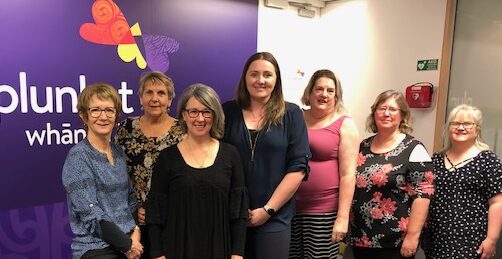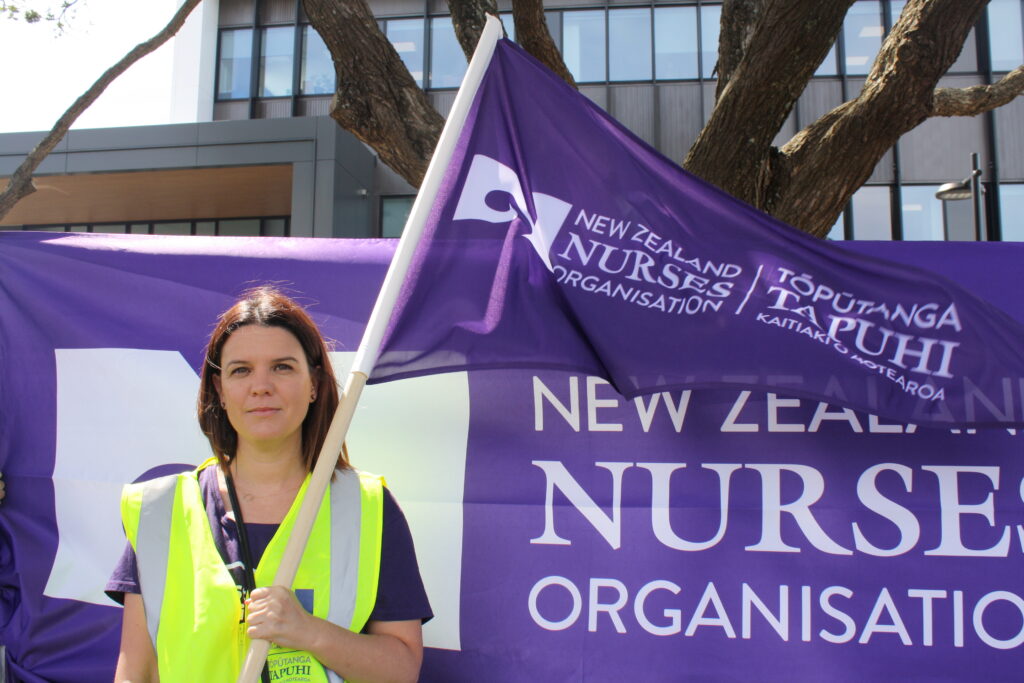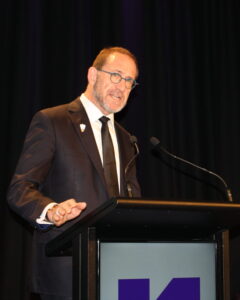For one Whānau Āwhina Plunket member – a single parent – buying everything on her children’s school stationery list is out of reach.
“I feel embarrassed about this, knowing the school will email me and ask for ‘all stationery’.”
Pleas from the children to do gymnastics after school have gone unanswered – that is “just not affordable for me”. She knows school camps and other education-related requests will be coming, and that leaves her feeling “stressed”.
“I love my job and am very grateful, however it would be extremely beneficial if I could build some savings, get my kids the basics, pay for all their schooling necessities.”

The community worker, who did not want to be identified, is one of about 700 members employed by the not-for-profit organisation, who voted to accept a three per cent wage rise – an offer previously rejected – this week.
Members under the agreement include registered nurses (RNs), clinical educators, community (Karitane) workers and administrators, who support the physical, mental and social wellbeing of whānau and their young tamariki. The organisation is the largest well-child services provider in New Zealand.
The new agreement includes a wage increase of less than half the inflation rate of 7.2 per cent as at the end of January, and backpay to July 2022 (rather than March 2022 when the previous agreement expired). It expires on June 30 this year.
“In all my years of bargaining I have never experienced that.”
NZNO industrial advisor Danielle Davies said inflation had started to rise when the previous Whānau Āwhina Plunket agreement was signed in July 2021.
The upwards trajectory continued steadily until the agreement’s expiry on March 1, 2022 when it was 6.9 per cent. By June last year, when negotiations for a new agreement were underway, the consumer price index (CPI) reached its highest point in decades at 7.3 per cent.
“This is why the members came to delegates [in December] and said: ‘Can you put that back to a vote?’ ”

Davies said the request to vote again on an unchanged offer was highly unusual and underscored the financial pain members were experiencing.
“In all my years of bargaining, I have never experienced that.”
Members believe the new pay deal is not fair or adequate, but say they could not wait any longer for some financial relief.
Whānau Āwhina Plunket relies heavily on government funding and says the current levels would not cover parity rates with the NZNO/Te Whatu Ora collective agreement, which they support in principle.
“I feel like s… sometimes to be honest, I feel pretty hopeless.”
In November, Minister of Health Andrew Little said the first groups to benefit from pay parity funding would be those in aged care, hospices, homecare support and Māori and Pacific health-care organisations “because there is clear evidence that that is where the biggest pay gap is”.
“I expect these contract changes will happen in the first part of next year, followed by mental health and addiction facilities, organisations caring for the disabled and other types of residential care, and then other government-funded health services.”
Government response
In response to an enquiry by Kaitiaki, Little confirmed Whānau Āwhina Plunket nurses were included in the pay parity funding.

Te Whatu Ora primary, community and rural national commissioning interim director Emma Prestidge said Te Whatu Ora was “aiming for the new funding to be . . . passed on to the nurses from 1 July, 2023”.
“Whānau Āwhina Plunket delivers a valued service across the motu and, whilst it was not specifically mentioned in the announcement, it was always included under the general heading of government-funded health services.”
Family Start social worker and delegate Debs Radley is on the top rate for her role – $63,500. She works with a case load of 16 whānau, who have significant social, mental health and addiction problems.
Radley’s pay is far less than that of peers at Oranga Tamariki, which range from $76,284 to $92,465.

To cope with rising costs and wage stagnation, Radley sold her home to downsize her mortgage, insurance and rates payments.
She voted to ratify the three per cent offer as it was “better than a slap across the face with a wet fish”.
Another member, who has more than a decade of experience as an RN including in a hospital intensive care unit, and five years at Whānau Āwhina Plunket, said she had young adult relatives who were earning at least $10 more an hour than her in banking and building jobs, despite having little experience.
She voted to ratify the three per cent offer as it was ‘better than a slap across the face with a wet fish’.
When the interest rate on her mortgage increased by three per cent recently, she asked her bank if she could pay interest-only for a period. The bank declined this, and instead sent her a hardship grant application.
The member, who did not want to be named, said her financial situation made her feel really sad.
“I feel like s… sometimes, to be honest, I feel pretty hopeless. I couldn’t imagine being able to visit my children who have moved overseas.
I just feel like . . . I’m less . . . you do feel like less of a person.”

Whānau Āwhina Plunket chief executive Fiona Kingsford said a meeting is scheduled with Te Whatu Ora to discuss funding in February.
While the organisation’s nursing and health-care staff are set to benefit from the Government’s $200 million pay parity funding announcement, they are in the third tranche of spending, she said.
“At this stage we still have no details on what the funding uplift will be or when this will be implemented. We are anticipating it will be aligned to our next contract term which commences in July 2023.”
Kaitiaki asked Te Whatu Ora if Whānau Āwhina Plunket pay parity rates would match the new Te Whatu Ora rates, with a pay equity adjustment.
A spokesperson said: “The funding moves towards the Te Whatu Ora nurses adjusted rates, but it will not reach this level immediately.”
Wage comparison – Whānau Āwhina Plunket and Te Whatu Ora
The table below sets out pay rates under the different collective agreements for three roles/steps.
| Plunket CA | DHB Meca (expired) | Difference | Plunket CA | DHB Meca | Difference | Plunket CA | Te Whatu Ora CA (interim pay equity adjustment) | Difference | |
|---|---|---|---|---|---|---|---|---|---|
| 6-Jul 2021 |
6-Sept 2021 |
11-Jul 2022 |
6-Sept 2021 |
11-Jul 2022 |
7-March 2022 |
||||
| Per hour | Per hour | Per hour | Per hour | Per hour | Per hour | ||||
| Registered Nurse Step 7 |
$37.98 | $40.65 | -7% | $39.12 | $40.65 | -4% | $39.12 | $45.70 | -14% |
| Community worker (Karitane) Step 4 |
$27.43 | $30.13 | -9% | $28.25 | $30.13 | -6% | $28.25 | $34.18 | -17% |
| Clinical leader Step 3 |
$51.30 | $53.93 | -5% | $52.84 | $53.93 | -2% | $52.84 | $56.27 | -6% |


